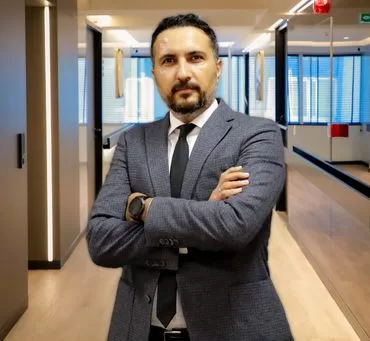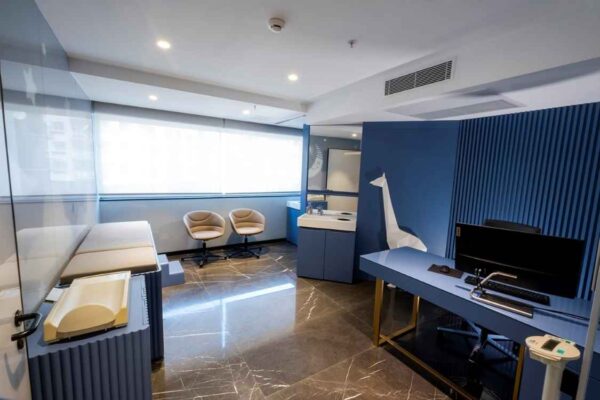Uveitis is a disorder that affects millions of individuals globally and can be hazardous to vision. If the central layer of the eye’s uveal inflammation is not promptly and successfully treated, it may have a number of negative effects.
Turkey’s low expenses and excellent healthcare system have made it more popular as a destination for medical tourists in recent years. The treatment of uveitis in Turkey, criticism of medical schools, the standard of Turkish doctors, expenses, adherence to European standards of quality, and the causes and treatments of uveitis are all topics covered in this essay.
Uveitis Causes and Effects
Before getting into the intricacies of treatment in Turkey, it is essential to comprehend the causes and effects of uveitis. Uveitis can be brought on by a variety of ailments, including autoimmune diseases (such rheumatoid arthritis or sarcoidosis), infections (like tuberculosis or herpes), and trauma. Idiopathic refers to a condition for which no cause is understood. Glaucoma, cataracts, retinal degeneration, and perhaps irreversible vision loss are all major side effects of untreated uveitis. Uveitis sufferers therefore require prompt access to top-notch medical care.
Summary of Turkish Uveitis Treatment
Due to the fact that Turkey offers a variety of healthcare treatments, including the treatment of uveitis, it has become increasingly attractive as a destination for medical tourists. One of Turkey’s biggest draws is its state-of-the-art facilities, qualified medical staff, and dependable medical infrastructure.
The Medical Universities in Turkey
One of the most crucial aspects of uveitis treatment in Turkey is the quality of the medical faculties. There are several medical colleges and institutions in Turkey, and they are well known for their rigorous academic programs and cutting-edge research. It does, however, have problems much like every other healthcare system.
Critics claim that the curriculum of Turkish medical schools has to be changed, particularly for specialized specialties like ophthalmology. According to some experts, medical schools ought to emphasize more the specific education required to treat uveitis. The homogeneity of medical education throughout the nation’s educational institutions is one factor that might have an impact on how frequently medical treatment is given. You can check the link below.
Turkey’s Medical Knowledge
The training and experience of a country’s medical staff has a big impact on the quality of its healthcare services. In Turkey, there is no shortage of highly skilled medical personnel, particularly ophthalmologists who specialize in treating uveitis.
Turkish doctors are well known for their dedication to their professions and willingness to stay current with emerging medical developments. Numerous Turkish ophthalmologists have received acclaim for their work from other nations. It’s important to keep in mind that highly skilled medical professionals are geographically dispersed in a variety of ways, and some remote populations may only occasionally have access to such information.
The Price of Uveitis Treatment in Turkey
One of the most important considerations when selecting whether to treat uveitis in Turkey rather than in many other Western countries is the expense of healthcare in Turkey. Due to its low cost of living, Turkey is a popular choice for those seeking high-quality healthcare at a reasonable price. This includes examinations, prescription drugs, surgeries, and consultations.
Due to several factors, including lower prices, the Turkish healthcare system may have reduced operating and labor costs. Furthermore, patients from other nations typically benefit from favorable exchange rates, which sharply reduces the overall cost of care. Patients must do their homework and understand the pricing structure because expenses might vary depending on the clinic or hospital, the doctor’s fees, and the complexity of the intended therapy.
European Quality Standards Compared To Turkey
Anyone thinking about getting treatment for uveitis in Turkey should make sure the hospitals adhere to strict European standards. Numerous Turkish hospitals and clinics have attained the Joint Commission International (JCI) certification, which confirms compliance with strict quality and safety standards.
Patients can unwind knowing that their care will meet or surpass worldwide standards thanks to these accreditations. Patient safety, infection control, and the use of modern medical technologies are also discussed. Patients must, however, look into the credentials of the facility and the medical professionals handling their treatment in order to make sure that these stringent requirements are met.You can check the link below.
Uveitis Causes and Treatment Options
The causes and remedies for uveitis should be known to both patients and medical practitioners. Uveitis may have underlying causes that include infections (bacterial, viral, or fungal), autoimmune diseases (like lupus or multiple sclerosis), and inflammatory conditions (like Behçet’s disease or Vogt-Koyanagi-Harada syndrome). Finding the root of the problem is therefore typically the first step in treatment. In-depth diagnostic investigations are required in this case, including imaging, blood work, and even an eye tissue sample.
Once the underlying source of the problem has been found, it can be treated in a number of ways, including with medication, corticosteroid eye drops, immunosuppressive medicines, or even surgery in severe situations. A variety of treatments may be used, depending on the sickness, its severity, and the particular tissues damaged. Since uveitis sufferers may require long-term maintenance to prevent a recurrence and preserve their vision, constant monitoring is an essential part of their care.
Conclusion
Finally, those seeking affordable, top-notch healthcare should pay special attention to Turkey’s uveitis therapies. The caliber of Turkish physicians and medical facilities is amazing, notwithstanding criticism of the nation’s medical schools and concerns over doctor-to-patient ratios in some locations. Patients considering undergoing uveitis treatment in Turkey should research the facility, check the credentials of the medical staff, and confirm that it meets with European quality standards. When taking the right steps, patients can successfully manage their uveitis while receiving medical treatment in Turkey and even maintain their vision.
FAQs
The local currency of the Republic of Turkey is the Turkish Lira. Our patients can convert their cash from exchange offices to Turkish Lira.
Our patients can withdraw money in Turkish Lira, Euro and Dollar through ATMs in Turkey. You can easily withdraw money with foreign language options available at ATMs.
Foreigners can use their own vehicles with the obligation to carry their own driver's license, vehicle license and passport with them. Vehicles are driven on the right side of the road in Turkey.
The sockets in Turkey are dual like the sockets used in Europe.
If you have your phone line open for use abroad before coming to Turkey, you can use your own operator as well as local GSM operators.
Our Team
Our Hospital
Atilla, Halide Edip Adıvar St.
No:57, 35270 Konak/İzmir































